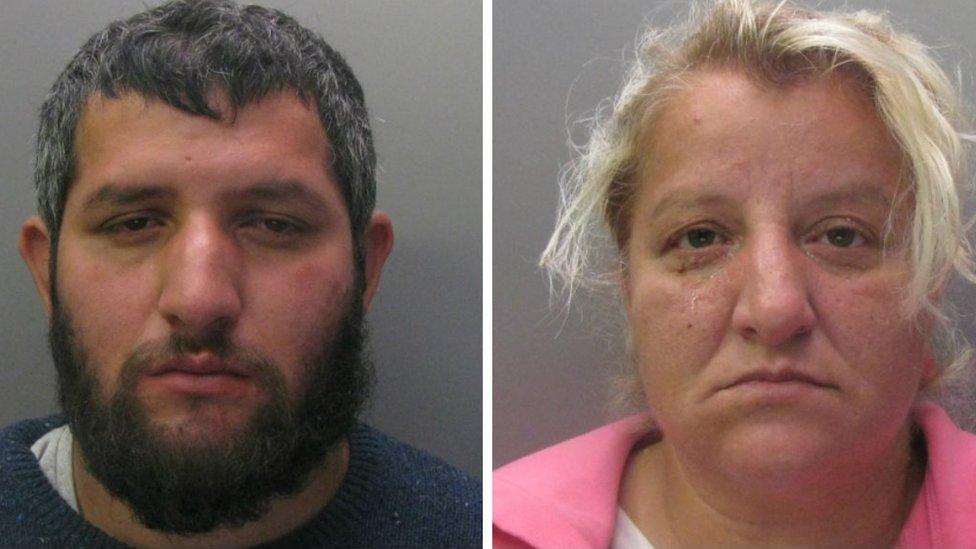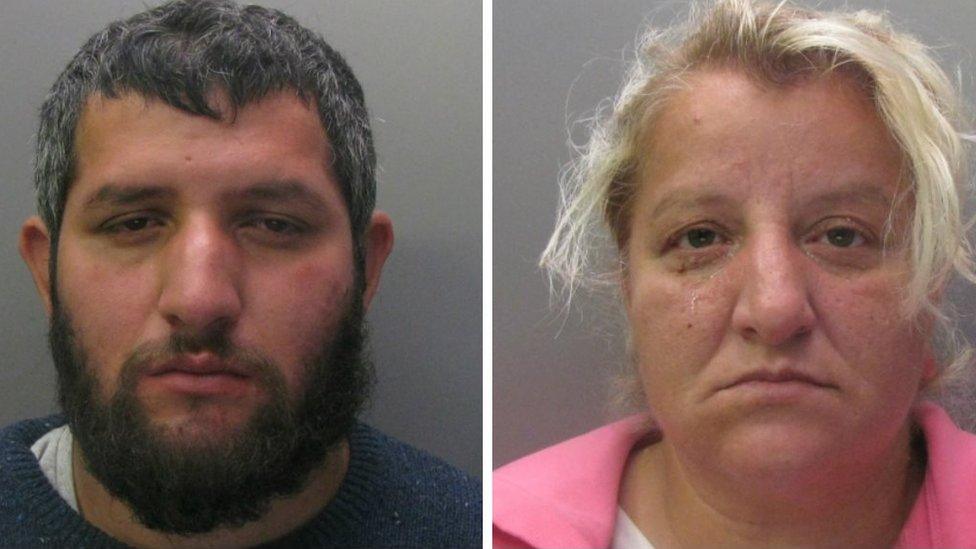Slavik family 'degraded' men kept in cramped Peterborough rooms
- Published

Roman Slavik and Maria Slavikova were two of four members of the same family to be convicted
A family who used two vulnerable men to fund their own lifestyle treated them in a "degrading and disgusting fashion", police have said.
Over eight years the Slavik family kept the men in cramped conditions, made them work long hours for agencies and had control over their bank accounts.
The victims, from Slovakia, were not allowed to return home or leave the UK.
Four members of the family, who kept the men at homes in Peterborough, have now been convicted.
Maria Slavikova, 47, and her son Roman Slavik, 29, were jailed in March for fraud and two others, Margarita Slavikova, 68, and Robert Slavik, 40, are due to be sentenced later this month for the same offence.
Roman Slavik was also guilty of immigration and exploitation offences.
Det Ch Insp Rob Hall, from Cambridgeshire Police, said the two victims were met abroad in 2008 and offered work in the UK with travel, accommodation and food.
"They were then accommodated in the same dwelling as the Slavik family but in essentially cramped, poor quality rooms, with the Slavik family having a higher quality of accommodation, food and furniture than their two victims," he said.
'Should face justice'
He said the pair worked long hours but only received about £30-40 a week, with the Slaviks keeping a "large amount of money under the guise of food and accommodation".
Det Ch Insp Hall said they were "exploited for further criminal activities" and made to take out loans for the Slavik family and left with the associated debt.
One of the victims was even forced into a sham marriage with a Filipina woman to avoid immigration controls.
The ordeal finally ended in 2016. Later, European arrest warrants were issued and some members of the family were extradited back to the UK.
Det Ch Insp Hall said: "If those people are abroad it didn't mean they couldn't do this to other people - they should face justice for what happened."
Det Con Pete Hume, who worked on the case for two years, said he hoped it would raise awareness of other potential similar crimes.
"It might be in the house next to you. If we can open up the eyes of people to see around and help one person then it's worth it," he said.
- Published6 March 2019
